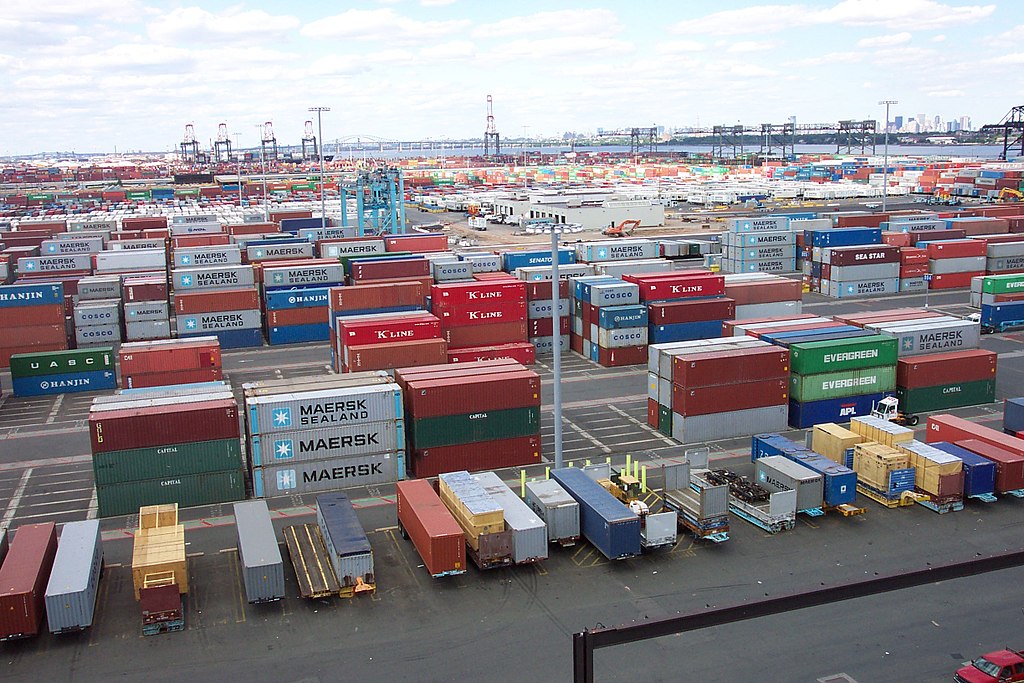The European Union’s Sustainability Omnibus Proposal, unveiled on February 26, 2025 is a game changer for global businesses. Designed to fine tune the EU’s Green Deal framework, this proposal simplifies corporate sustainability rules, balancing environmental ambition with economic competitiveness. For Indian companies, particularly those linked to the EU’s €124 billion (₹ 6,09,300 crore) goods trade market in 2023 (12.2% of India’s total trade), this is a wake-up call. Exporters, manufacturers, and firms embedded in European supply chains need to adapt to the changes or risk being left behind.
The stakes couldn’t be higher. The EU is India’s largest trading partner and its second-largest export destination, accounting for 17.5% of India’s total exports. Trade in goods has escalated by nearly 90% over the past decade, while services trade hit €59.7 billion (₹ 5,37,300 crore) in 2023. Yet, with great opportunity comes great responsibility. The Omnibus Proposal’s sustainability mandates can either unlock new market opportunities and enhance India’s global standing, or create trade barriers that can damage brand’s reputation and hamper profits. Indian businesses can’t afford to ignore this shift.
Key aspects of the Omnibus Proposal
The Omnibus Proposal simplifies key regulations like the Corporate Sustainability Reporting Directive (CSRD), Corporate Sustainability Due Diligence Directive (CSDDD), Carbon Border Adjustment Mechanism (CBAM), and EU Taxonomy. Here’s what Indian firms need to know:
- Stricter supply chain due diligence: Under the CSDDD, companies must ensure their entire supply chain meets sustainability benchmarks taking into consideration some key elements—emissions, human rights, and environmental impact. While due diligence now focuses on direct suppliers (with reviews once in at least five years instead of at least once in a year), significant risks deeper in the chain can still trigger scrutiny. This change saves €320 million yearly but demands extra caution from Indian suppliers.
- CBAM’s dual edge: The Carbon Border Adjustment Mechanism provides relief to small importers handling less than 50 tonnes of goods annually, mostly SMEs—while maintaining 99% emissions coverage. Larger exporters, however, face heightened scrutiny, with simplified yet rigorous emissions reporting starting in 2025. This could change European buyer’s preference towards suppliers with stronger sustainability credentials. .
- Focused disclosure requirements: The Omnibus Package reduces data points for sustainability reporting, ensuring that disclosures are clearer and more auditable. This shift makes compliance less complex and more focused.
Direct impact on Indian businesses
Indian companies across all sectors will feel the Omnibus Proposal’s ripple effects:
- Exporters to the EU must be in sync with new standards: Industries like manufacturing, textiles, pharmaceuticals, and IT services—which contribute a major portion in India’s export to EU will have to face stricter sustainability norms. A steel exporter shipping over 50 tonnes annually will need to track emissions meticulously, while a textile manufacturer supplying to the EU market must ensure human right audits are in place. Even though the compliance cost may rise, businesses that decide to adapt will have some competitive advantage.
- Supply chain compliance will be crucial: Even firms not directly exporting to the EU but supplying intermediaries—like a component maker for a German auto firm—must comply. While the CSDDD’s focus on direct suppliers eases some pressure, indirect suppliers’ sustainability requirements will cascade through the supply chain.
- Data & transparency will be mandatory: Tracking sustainability metrics like emissions, waste and water usage is no longer optional. Indian businesses must invest in technology to monitor and report environmental data, especially if they have significant EU operations.
- CBAM: Opportunity and risk: Small exporters under the 50-tonne cap, like a niche spice trader can leverage this exemption as a selling point to EU buyers. However, for larger players, compliance is non-negotiable. That said, aligning with CBAM could unlock new market access, and boost investor confidence.
- Risks & opportunities: Failing to meet these new standards could lead to trade barriers. Imagine losing access to a market that absorbed €67.7 billion (₹ 6,09,300 crore) worth of Indian goods in 2022. Conversely, businesses that comply could win EU contracts, strengthen brand credibility, and attract sustainability conscious investors.
The numbers speak of urgency: India’s trade deficit with the EU widened to €16.7 billion (₹ 1,50,300 crore) in 2023. Falling behind on sustainability will only widen this gap.
What Indian Businesses should do next
Proactivity is the key to turning the Omnibus Proposal into an advantage. Here’s a roadmap:
- Evaluate your EU exposure: Map your EU touchpoints—whether through direct exports, supply chain roles, or subsidiaries. An IT firm with 1,000+ employees in Europe will fall under the CSRD, while a garment maker supplying to an EU retailer must be prepared for the CSDDD ripple effects. Know where you stand.
- Strengthen sustainability compliance: Invest in sustainability and ESG experts, integrate carbon accounting tools, and make sustainability a boardroom priority.
- Leverage technology & AI for compliance: Leverage automation to track emission, analyse risk and streamline reporting. This will not only simplify compliance but will also set industry benchmarks for transparency.
- Engage with European partners: Start discussions with EU buyers and clients now. An Indian exporter proactively engaging in discussions pertaining to CBAM compliance with a German buyer can secure contracts before competitors adjust. Collaboration prevents disruptions.
- Adopt a long-term sustainability strategy: Think beyond 2025. Invest in renewable energy, ethical labor practices, and transparent supply chains. Sustainability is not a cost, it’s a growth strategy.
These steps aren’t just about compliance—they’re about positioning Indian firms as sustainability leaders.
Time to act, not react
The EU’s Sustainability Omnibus Proposal isn’t a distant policy. For Indian businesses, it’s a double-edged sword: a chance to lead or a risk of lagging. With trade ties deepening—€59.7 billion (₹ 5,37,300 crore) in services in 2023, up from €30.4 billion (₹ 2,73,600 crore) in 2020—the EU market is too vital to be treated as an afterthought.
Adaptation isn’t optional; it’s urgent. Companies that act now by investing in sustainability, embracing transparency, and strengthening partnerships with Europe, will turn compliance into a competitive edge. Imagine an Indian textile firm winning EU contracts for its low-carbon fabrics or a tech giant attracting green investments for its audited supply chain. These aren’t hypotheticals—they’re the rewards of foresight.
Sustainability does not have to come at a cost, instead it’s a driver of long term growth, profitability, and resilience. The Omnibus Proposal offers Indian firms a grace period to innovate. But that window won’t last. As Ursula von der Leyen said, “Sustainability and competitiveness should go hand in hand.” Indian businesses that heed this call can secure market leadership in a green global economy. The time to act is now—because reacting later won’t be enough.
The views and opinions expressed in this article are the author’s own, and do not necessarily reflect those held by pv magazine.
This content is protected by copyright and may not be reused. If you want to cooperate with us and would like to reuse some of our content, please contact: editors@pv-magazine.com.








By submitting this form you agree to pv magazine using your data for the purposes of publishing your comment.
Your personal data will only be disclosed or otherwise transmitted to third parties for the purposes of spam filtering or if this is necessary for technical maintenance of the website. Any other transfer to third parties will not take place unless this is justified on the basis of applicable data protection regulations or if pv magazine is legally obliged to do so.
You may revoke this consent at any time with effect for the future, in which case your personal data will be deleted immediately. Otherwise, your data will be deleted if pv magazine has processed your request or the purpose of data storage is fulfilled.
Further information on data privacy can be found in our Data Protection Policy.